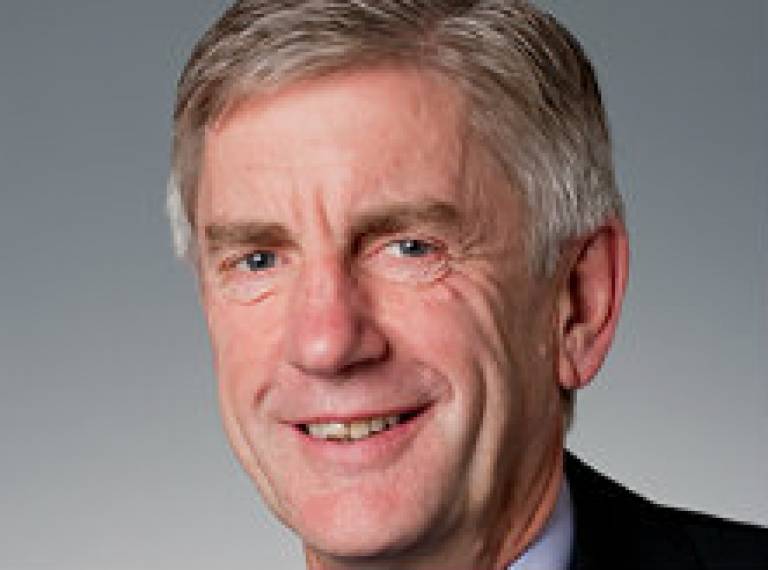Professor Sir John Tooke, Vice-Provost Health to retire in July 2015
3 September 2014
Having come to UCL from a small but "perfectly formed" institution (the Peninsula College of Medicine & Dentistry), I couldn't help be overwhelmed by the scale and complexity of the School of Life and Medical Sciences.
 Indeed
the commonest outside comment to me when I took up post was that our strengths
were not always apparent and we sometimes struggled to be more than the sum of
our parts. I very much hope such is now not the case.
Indeed
the commonest outside comment to me when I took up post was that our strengths
were not always apparent and we sometimes struggled to be more than the sum of
our parts. I very much hope such is now not the case.
Indeed the breadth of excellence and our sheer size lend themselves to one of the key characteristics of the institution - a clear propensity for interdisciplinary work from which the solutions to many complex problems derive. I have been struck by just how capable we are in this regard, a culture no doubt nurtured by the Grand Challenges ethos. It's been particularly pleasing to see our own health informatics community come together and achieve remarkable funding success in the last few years as a result. Another example would be the Leonard Wolfson Experimental Neurology Centre, representing the largest grant ever made by the Wolfson Foundation, to support the study of experimental approaches to neurodegenerative disease, which would not have been possible without bringing our collective strengths to bear.
If you are involved in "academic management" (if that is not an oxymoron!) you approach restructuring with caution, but I do believe that the creation of the four Faculties within the School of Life and Medical Sciences has been a success, emphasising our commitment across the whole translational pathway, or from bench to bedside to population, as well as underlining our core strengths as an institution in brain science. That this has worked so well is down to the great leadership of the Faculties and the ambitious plans that they have developed to take full advantage of the opportunities. Importantly, these plans recognise the need to fully engage the talents of the wider University in their realisation.
Having spent an early part of my career as a Wellcome Trust Senior Lecturer at Charing Cross Hospital Medical School as then was, I have been struck by a spirit of partnership in London which simply was not possible three decades ago. I'm pleased that I was able to precipitate the formation of the London Academic Health Science Centre Executive, and over the last few years we've seen the creation of Imanova and MedCity, and the Francis Crick Institute is within a year of completion. I profoundly believe that the successful academic institutions of the future will be those that can build the mutually beneficial collaborative networks and partnerships to answer the questions that no one institution, however prestigious, can answer alone.
There have been many advances over the nearly five years I have been in post, many of which are down to the efforts of others. Those that I have been proud to have some part in facilitating are many, and include for example our burgeoning relationship with the London School of Hygiene and Tropical Medicine that is leading to the development of the Bloomsbury Research Institute; the establishment of the Sainsbury Wellcome Centre for Neural Circuits and Behaviour under a great Director; the integration of the School of Pharmacy based on clear academic principles and advantages for both parties; the success of the Translational Research Office and the growth in our industrial collaborations; the ambitious plans for a Dementia Research Institute as part of the Queen Square House redevelopment; the growth and growth of UCLPartners and the centrality now of UCL to the UCLP AHSC six Academic Medical Centre model; and the appropriately high profile achieved by the burgeoning new Faculty of Population Health Sciences.
UCL is an incredibly strong institution with a great culture and a great team. I believe the School of Life and Medical Sciences is set fair for another step function in achievement in pursuit of UCL's 2034 Strategy. I'll be working hard over the coming year to ensure that goal is realised, bringing to conclusion one of the most fulfilling and enjoyable periods in my professional life.
The advertisement for my successor is on the UCL website (closing date 17 September): http://bit.ly/1nVEqGg
Professor Sir John Tooke, Vice-Provost Health
 Close
Close

